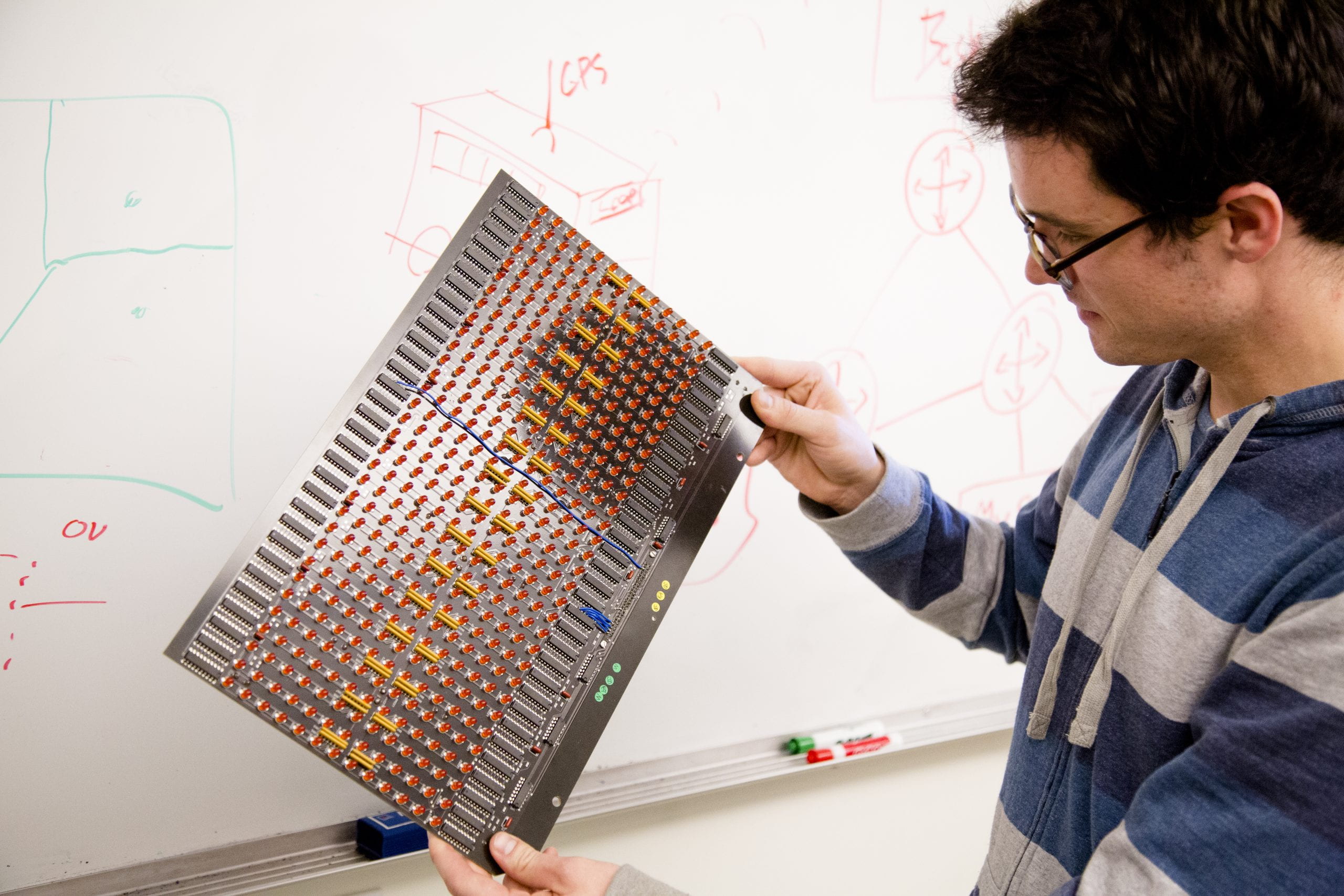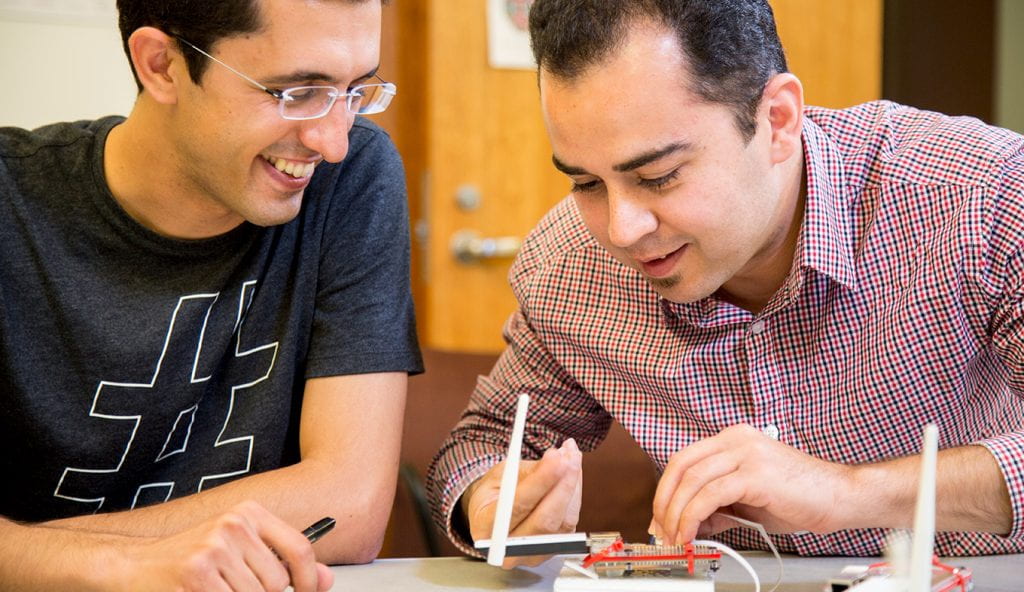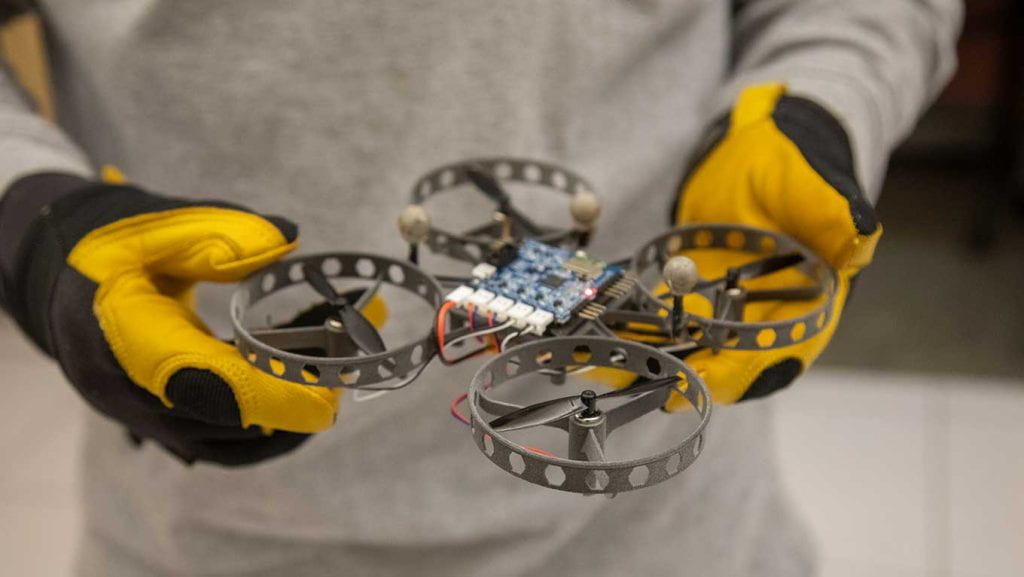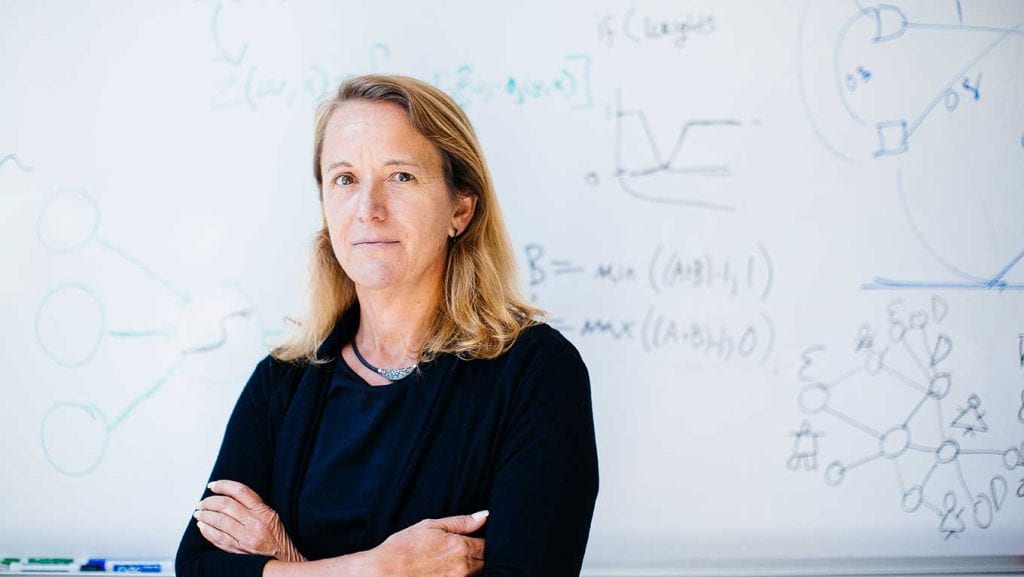
The Computer Science and Engineering (CSE) department spans multiple areas of research including theory, systems, AI/ML, architectures, and software.
CSE’s areas of research are computer hardware, including architecture, VLSI (chip design), FPGAs, and design automation; computer security and privacy; cyber-physical systems; distributed systems; database systems; machine learning and artificial intelligence; natural language processing; networks; pervasive computing and human-computer interaction; programming languages; robotics; social computing; storage systems; and visual computing, including computer vision, visualization, and graphics.
In cooperation with other departments on campus, CSE also offers a strong research group in bioinformatics, computational biology, biomolecular engineering, and human genome mapping. The CSE department enjoys a close relationship with the Electrical and Computer Engineering, Applied Mathematics, and Statistics departments. Faculty members carry out joint research projects, supervise students, and teach courses for these departments. The M.S. degree requires either a master’s thesis or an approved project and is usually completed in two years, although it is possible to complete the program in one year. The Ph.D. degree is usually completed in five years.
20%
of the UCSC fall 2022 class are computer science majors
#5
of the top 50 Institutions by Total Bachelors Degrees awarded in Computer Science in Engineering (ASEE, 2020)
3
2022 National Science Foundation CAREER awards won by faculty
#32
for top computer science institutions around the world
(Computer Science Rankings, 2023)
6th
Distinguished Professor David Haussler ranked sixth among top scientists in computer science (Top Scientists Ranking for Computer Science and Electronics, 2021)
Preventing bias in AI

UCSC computer scientists have created an automated tool for measuring implicit human bias in text-to-image generative AI technologies and hope to use it to discover new ways for preventing bias in new and existing models.
CSE Research News
We’re Hiring!

Open positions include: lecturer, teaching professor, research professor. Find out more.
Career Opportunities with a Computer Science and Engineering Degree

- Software Engineer/Developer
- Hardware Engineer/Developer
- Network Engineer
- Web Developer
- Mobile App Developer
- AI/ML Engineer
- UX Designer
- Systems Architect
- Cybersecurity Engineer





